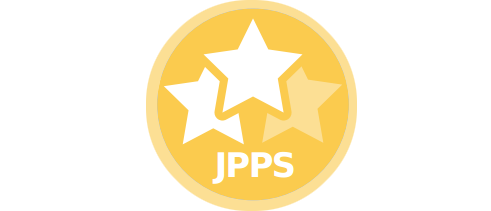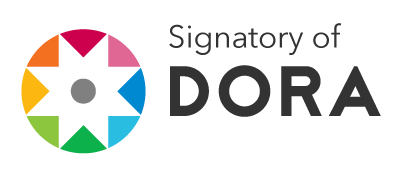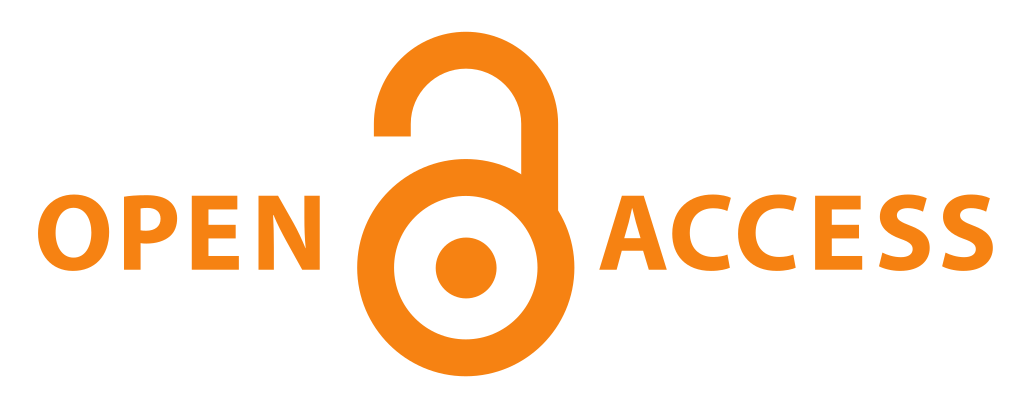Education and Citizenship: Service-Learning for the Construction of Citizenship
Keywords:
education, learning for civic awareness, human development, service-learningAbstract
The objective of this article is to analyze Service-Learning (SL) as an educational approach and to redefine it as a methodology for the practice of civics and consolidation of human development; with the aim of proposing two methodological routes that facilitate Learning for Civic Awareness. (LCA). SL has been found to have theoretical-methodological bases that can be reoriented to consolidate civic awareness, making the student the subject and agent of transformation of oneself and of society, because one has integrated the curricular and social dimension and school with the community. However, where the current educational practice is concerned, receptive, behaviorist or cognitivist learning is maintained. In view of this, LCA is being proposed, with two methodological strategies for SL: bringing the school to the community or vice versa. It is concluded that LCA is a transformative process-approach that prepares for lifelong learning, promotes integral education and fosters social change. The purpose is to develop civic skills in students for comprehensive human development with the methodology being the SL.
References
Andréu Abela, J. (2002). Las técnicas de Análisis de Contenido: Una revisión actualizada. https://abacoenred.org/wp-content/uploads/2019/02/Las-t%C3%A9cnicas-de-an%C3%A1lisis-de-contenido-una-revisi%C3%B3n-actualizada.pdf
Aguado, T. (1991). La educación intercultural: concepto, paradigmas, realizaciones. En C. Jiménez (Coord.), Lecturas de pedagogía diferencial (pp. 89-104), Dykinson.
Annette, J. (2005). Character, civic renewal and service learning for democratic citizenship in higher education, British Journal of Educational Studies, 53 (3), 326-340, https://doi.org/10.1111/j.1467-8527.2005.00298.x
Aramburuzabala, P. (2013). Aprendizaje-servicio: una herramienta para educar desde y para la justicia social. Revista internacional de educación para la justicia social, 2 (2), 5-11.
Castañe, J. (1981). El concepto de educación como desarrollo intencional perfectivo. Revista Española de Pedagogía, (153),161-169.
Cortina, A. (2009). Ciudadanos del mundo. Hacia una teoría de la ciudadanía. Alianza Editorial.
Dean, G. J. y Murk, P. J. (1998). Progress Town Analysis-An Application of the Process Model for Experiential Learning in Adult Education [Conference]. Paper printed at the Annual Meeting of the American Association for Adult and Continuing Education, Phoenix, AZ, November 19 – 22 -1998.
De Sousa, B. (2010). Descolonizar el Saber, reinventar el poder. TRILCE.
Dewey, J. (1967). Experiencia y Educación. Losada.
Dewey, J. (1998). Democracia y educación. Morata.
Fermoso, P. (1976). Teoría de la Educación. Aguiló.
Fernández Tapia, J. (2014). Argentinos y peruanos en la Ciudad de México, 1970-2009: ¿configuración de una Ciudadanía Transnacional Digital?, Ánfora 21(36), 91-123.
Freire, P. (1967). La educación como práctica de la libertad (Río de Janeiro: Paz e Terra). Siglo XXI. Montevideo.
Freire, P. (1997). Pedagogia da autonomia. Saberes necessários à prática educativa. Sao Paulo: Paz e Terra.
García Cano, M., Hinojosa Pareja, E., Alcalde Sánchez, I., Álvarez Sotomayor, A., Cerrillo Vidal, J. A., Hidalgo Ariza, M. D., Martínez Carmona, M. J. (2019). Aprendizaje-Servicio: aprender desde la experiencia y la reflexión. Revista de Innovación y Buenas Prácticas Docentes, 8(3), 74-87. https://helvia.uco.es/xmlui/bitstream/handle/10396/19618/innovacion_y_buenas_practicas_docentes_8.pdf?sequence=1&isAllowed=y
Honnet, E. y Poulsen, S. (1989). Principles of good practice in combining service and learning. Wingspread Special Report. Racine WI: The Johnson Foundation National Service Learning Clearinghouse, (pp. 1-17). https://digitalcommons.unomaha.edu/cgi/viewcontent.cgi?article=1001&context=slceguides
Itin, C. (1999) Reasserting the philosophy of experiential education as a vehicle for change in the 21st century. The Journal of Experiential Education, 22(2), 91-98. https://doi.org/10.1177/105382599902200206
Jerome, L. (2012) Service learning and active citizenship education in England. Education, Citizenship and Social Justice, 7(1). 59-70. https://doi.org/10.1177/1746197911432594
Joplin, L. (1981). On Defining Experiential Education. Journal of Experiential Education, (4), 17-20. https://doi.org/10.1177/105382598100400104
Kolb, D. A. (1984). Experiential Learning: Experience the Source of Learning and Development. Prentice Hall.
Kolb D. A. y Fry, R. (1975). Toward an Applied Theory of Experiential Learning. En C. Cooper (ed.) Theories of Group Process. London (pp. 33-57). John Wiley.
Kymlicka, W. (1996). Ciudadanía multicultural. Una teoría liberal de los derechos de las minorías. Paidós.
Lara, J. y Lara, L. (2004). Recursos para un aprendizaje significativo. Enseñanza (22), 341-368.https://gredos.usal.es/bitstream/10366/70765/1/Recursos_para_un_aprendizaje_significati.pdf
Lascaris, C. (2019). Un concepto de educación. Revista española de pedagogía, 51, 163-175.https://reunir.unir.net/bitstream/handle/123456789/9060/1UnConceptoDeEducacion.pdf?sequence=1&isAllowed=y
León, A. (2001). ¿Por qué se odia el aprendizaje? Educación y Familia, 1(1).
León, A. (2007). Qué es la educación. Educere, 11(39), 595-604. https://ve.scielo.org/pdf/edu/v11n39/art03.pdf
Marshall, T. H y Bottomore, T. (1998). Ciudadanía y clase social. Losada.
Martínez, V., Melero, N., Ibáñez, E y Sánchez, M. C. (eds.). (2018). El Aprendizaje-Servicio en la Universidad. Una metodología docente y de investigación al servicio de la justicia social y el desarrollo sostenible. Comunicación social Ediciones y Publicaciones.https://apsu10.ulpgc.es/images/Archivos/Plantillas/Fuentes_interes/ApSU8_2017_Sevilla.pdf
Makarenko, A. (1967). Poema pedagógico. Barcelona: Planeta.
Mayor, D. (2019). Dimensiones pedagógicas que configuran las prácticas del Aprendizaje-Servicio. Revista Páginas de Educación, 12, 23-42. http://orcid.org/0000-0002-4285-4210
Max Neef, M., Elizalde, A y Hopenhayn, M. (1986). Desarrollo a Escala Humana. Una opción para el futuro. Cepaur Fundación Dag Hammarskjöld.
Mayor, D. (2020). Service Learning as a Methodological Strategy for Promoting Expanded Education. REMIE-Multidisciplinary Journal of Educational Research, 10(1), 48-75.
Mendizábal, N. (2007). Los componentes del diseño flexible en la investigación cualitativa (pp. 65-105). En I. Vasilachis (Coord.), Estrategias de investigación cualitativa. Gedisa.
Mezirow, J. (2000). Learning as Transformation: Critical Perspectives on a Theory in Progress. Jossey-Bass Publishers.
Molerio, O., Otero, I. y Nieves, Z. (2007). Aprendizaje y desarrollo humano. Revista Iberoamericana de Educación, 44(3), 1-9. https://doi.org/10.35362/rie4432244
Nussbaum, M. (2012). Crear capacidades. Propuesta para el desarrollo humano. Barcelona: Paidós.
Olmedo, N. y Farrerons, O. (2017). Modelos constructivistas de aprendizaje en Programas de Formación. OmniaScience. https://core.ac.uk/download/pdf/148622351.pdf
Parra, C. (2011). Educación inclusiva: un modelo de diversidad humana. Revista Educación y Desarrollo Social, 1, 139-150. https://doi.org/10.18359/reds.897
Pineau, P. (1994). Temas de la historia de la educación. El concepto de “educación popular”: un rastreo histórico. Revista de Educación, 305, 257-278. https://www.educacionfpydeportes.gob.es/dam/jcr:90162a02-a463-4224-9ad4-d37c39db1dd2/re3051000493-pdf.pdf
Programa de las Naciones Unidas para el Desarrollo [PNUD]. (2002). Informe sobre el desarrollo humano 2002. Profundizar la democracia en el mundo fragmentado. Mundi-Prensa.
Raelin, J. (2000). Work-based Learning: The New Frontier of Management Development. Prentice Hall Inc.
Rochelau, J. (2004). Theoretical Roots of Service-Learning and the Development of Citizenship. En S. Speck & S. Hoppe. Service-Learning. History, Theory and Issues, (pp. 3-19). PRAEGER.
Tapia, M. N. (2008). Aprendizaje y servicio solidario en la misión de la Educación Superior. A. González. y R. Montes. El Aprendizaje-Servicio en la Educación Superior. Una mirada analítica desde los protagonistas (pp. 11-34). Editorial Universitaria de Buenos Aires.
Tapia, M. N. (2010). La propuesta pedagógica del “Aprendizaje Servicio”: una perspectiva latinoamericana. Tzhoecoen. Revista científica, 5, 23-44.
Saavedra, J. y Regalía, F. (11 de diciembre de 2023). La crisis de aprendizaje que afecta a los adolescentes en América Latina y el Caribe: Un primer vistazo a los nuevos resultados de PISA. Banco Mundial Blogs. https://blogs.worldbank.org/es/latinamerica/crisis-aprendizaje-america-latina-caribe-resultados-pisa
Santos, M., Sotelino, A y Lorenzo, M. (2015). Aprendizaje servicio y misión cívica de la universidad. Una propuesta de desarrollo. Ediciones Octaedro.
Sen, A. (1999). Desarrollo y Libertad. Planeta.
Sobariego, M. (2002). La educación intercultural. Ante los retos del siglo XXI. Desclée de Brouwer.
Sousa Santos, B. y Dussel, E. [El anexo: Reflexiones filosóficas]. (2013, 13 de octubre). Boaventura de Sousa Santos y Enrique Dussel en la UACM (comparte) [Vídeo]. Youtube. https://www.youtube.com/watch?v=E7BSirUOFio&ab_channel=Elanexo%3AReflexionesfilos%C3%B3ficas
Taylor, C. (1993). El multiculturalismo y la “política del reconocimiento”. México D.F.: FCE.
Torroella, G. (2001). Educación para la vida: el gran reto. Revista Latinoamericana de Psicología, 33(1), 73-84. https://www.redalyc.org/pdf/805/80533108.pdf
Torroella, G. (s.f.) Aprendizajes básicos para la vida y el desarrollo humano. Fragmento del libro Educación para el desarrollo humano. https://www.academia.edu/39276910/Aprendizajes_basicos_para_la_vida_G_Torroella
Valcarce, M. (2011). De la escuela integradora a la escuela inclusiva. Revista Innovación Educativa, 21, 119-131. http://hdl.handle.net/10347/6228
Valenciano, G. (2009). Construyendo un concepto de educación inclusiva: una experiencia compartida. En Sarto Martin, P y Venegas Renauld, M. E (Coords.). Aspectos clave de la Educación Inclusiva. 13-24. INICO. https://sid-inico.usal.es/idocs/F8/FDO22224/educacion-inclusiva.pdf
Downloads
Published
How to Cite
Issue
Section
License
Copyright (c) 2024 Paradigma: Revista de Investigación Educativa

This work is licensed under a Creative Commons Attribution-NonCommercial-NoDerivatives 4.0 International License.








